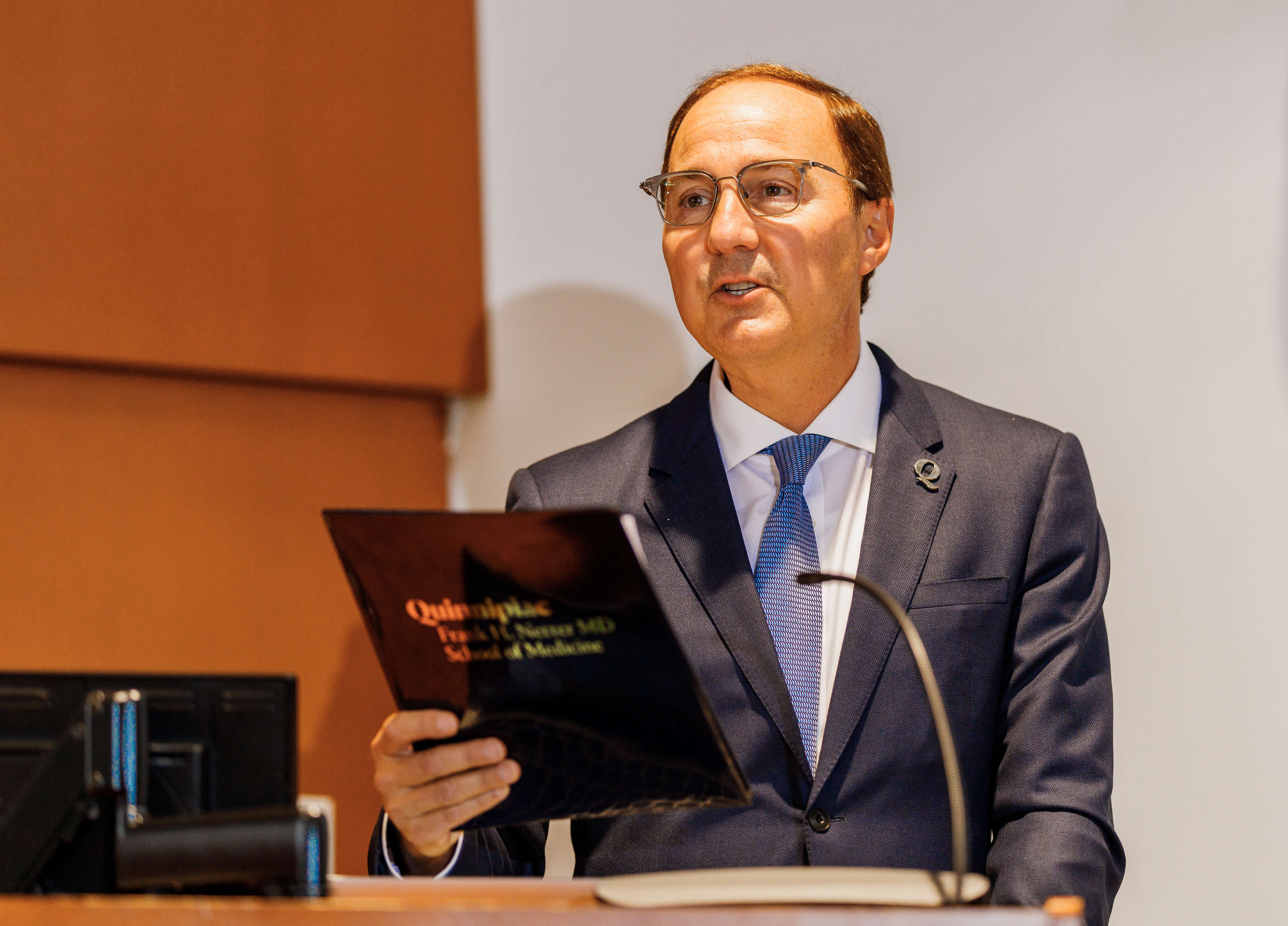
New medical school dean favors a listen-and-learn approach
August 10, 2021

August 10, 2021

Phillip Boiselle, MD, delivered the annual State of the Medical School address August 9 and said he was excited to do so in person, enabling him to meet some of the attendees for the first time since he began his duties June 30.
Boiselle said he’s done a lot of listening and learning during his first months on the job. “It would be presumptuous for me to assume that I could present a comprehensive assessment of the state of the school at this early juncture, so my goal is to continue to listen and learn over the fall so that we may develop a collective vision for our future,” he said.
Boiselle shared that one of his goals is to increase diversity among faculty. To that end, he announced the school will launch a search for a new associate dean for diversity, equity and inclusion this fall. The announcement was met with a hearty round of applause from his audience.
“One of Netter’s greatest strengths is its diverse student body,” Boiselle said. “Just last spring, Netter ranked 26th in U.S News & World Report’s inaugural Most Diverse Medical School rankings.
“While the school has been remarkably successful in this respect, it has lagged in recruiting and retaining a diverse faculty and senior administrative leadership staff,” he added. “I am committed to working collaboratively across the Netter community and in partnership with the university to address these issues.”
Boiselle said the new associate dean will focus on four areas: fostering a culture of inclusive excellence; developing strategies and support systems to successfully recruit, nurture and retain a diverse community of students, staff and faculty; strengthening ties to the community through deeper engagement in service and health equity initiatives; and developing and delivering diversity and inclusion training programs tailored to the Netter community.
Before coming to Quinnipiac Netter, Boiselle was professor and dean of the Charles E. Schmidt College of Medicine at Florida Atlantic University in Boca Raton. Under his leadership, Schmidt enhanced its national reputation, experienced a three-fold growth in National Institutes of Health research funding, expanded graduate medical education programs and experienced substantial growth of philanthropic support.
A champion of equity and inclusion, Boiselle engaged in substantial community partnerships that addressed the health concerns and needs of the area’s most vulnerable community members. He also helped to enhance the diversity of Schmidt’s medical student and graduate student populations, with approximately one-third of all students now coming from backgrounds traditionally underrepresented in medicine and biomedical sciences.
During his speech, Boiselle outlined areas of opportunity for the Netter School to help it fulfill its purpose of developing diverse and compassionate, patient-centered physicians who will advance the health and well-being of local and global communities.
Dowin Boatright, MD, assistant professor of emergency medicine at Yale School of Medicine, also spoke at the event. He shared his work with that school’s Equity Research and Innovation Center.
He presented quantitative and qualitative research from the 1970s to the present showing that medical students benefit greatly from a diverse academic environment and are better equipped to treat patients from various socioeconomic and racial backgrounds when diversity and inclusion are a hallmark of their medical school experiences.
Boatright also noted that while the percentage of female applicants to medical schools has increased significantly over that time, the percentage of underrepresented minority students has not. He emphasized that medical schools must address the climate of equity and inclusion in the learning environment in order to ensure a diverse physician workforce.
Quinnipiac Today is your source for what's happening throughout #BobcatNation. Sign up for our weekly email newsletter to be among the first to know about news, events and members of our Bobcat family who are making a positive difference in our world.
Sign Up Now